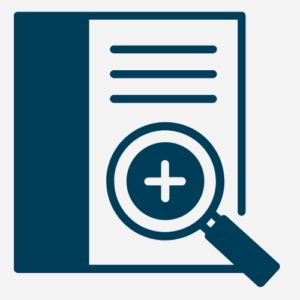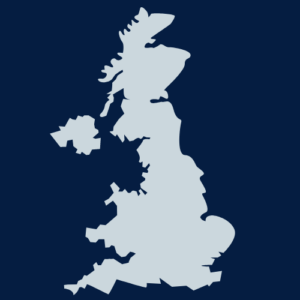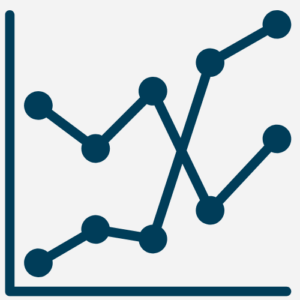The statistical system in brief
We will be periodically updating this guide with the most up to date information, please contact us if you have any suggestions on how we might improve the current edition of this guide. The latest edition of our guide to the statistical system includes a new section on official statistics.
Purpose of this guide
This guide summarises the Office for Statistics Regulation’s perspective on the UK statistical system. It serves as an accessible overview for readers who wish to understand key features of the system.
We will be amending this guide periodically when information changes or new information becomes available. If you have information you would like to share with us for inclusion in future issues of the guide, please contact regulation@statistics.gov.uk.
Overview of the statistical system
The UK statistical system includes those who collect, produce, disseminate, regulate and use official statistics, alongside central bodies that set strategic direction.
The production and publication of statistics that inform the public and policy making is a core government function. This is a role delivered by organisations across central and devolved governments, alongside those working on their behalf and non-crown bodies set out in legislation, making up the UK statistical system.
The system is more than just production and publication. Regulation of official statistics plays an important role too, as do central bodies which set strategic direction for the system. Users of statistics are a key part of the statistical system and external influences shape the context within which the statistical system operates.
The UK statistical system is underpinned by the Statistics and Registration Service Act (2007), which led to the creation of the UK Statistics Authority (the Authority), and specified specific roles and requirements that make the system what it is today. The Authority is a central body responsible for setting strategic direction and oversight of the statistical system, and it includes both the Office for National Statistics (ONS) and the Office for Statistics Regulation (OSR). This Act also prompted development of the Code of Practice for Statistics (the Code), which sets the standards that producers of official statistics should commit to.
Official Statistics
Official statistics are statistics produced by Crown bodies and other organisations listed within an Official Statistics Order, on behalf of the UK government or devolved administrations. Accredited official statistics (called National Statistics in the Statistics and Registration Service Act, 2007) and official statistics in development are both sub-sets of official statistics.
 Producers of official statistics
Producers of official statistics
The statistical system produces and disseminates official statistics. Official statistics are statistics produced by any person acting on behalf of the crown, or by the bodies named in secondary legislation. Both crown and non-crown producers of official statistics form part of the statistical system, and these producers span all four UK nations, and range from the British Film institute to the United Kingdom Atomic Energy Authority.
The largest producer of official statistics in the UK is the ONS. The ONS is the production arm of the Authority and the UK’s National Statistical Institute.
The collection, production and dissemination of official statistics involves a range of professions, and in the UK, Scotland and Welsh governments these individuals make up the Government Statistical Service (GSS). Statistical staff in Northern Ireland are not members of the GSS but maintain a close professional association with it.
At the latest counts, there were 2400 people recorded as statisticians in the UK civil service and 315 in the separate Northern Ireland civil service. But civil servants ‘badged’ as statisticians are not the only ones working on statistics in government.
 Regulation of official statistics
Regulation of official statistics
Official statistics are regulated by the Office for Statistics Regulation (OSR). OSR is the regulatory arm of the Authority. OSR maintains the Code and accredits official statistics that meet its requirements for trustworthiness, quality and value. It is also reports publicly on systemwide issues, and on the way statistics are being used, challenging publicly when they are not meeting standards.
 Users of statistics
Users of statistics
Users play a key role in the statistical system; it is only through regular dialogue between producers and users that the system can ensure that official statistics remain responsive to user needs. Users of statistics can be varied, and their needs should be at the heart of statistical production.
Users have a key role in providing challenge to the system and producers have a responsibility to seek views and respond to them. A cross-UK strategy and associated activities aim to support statistic producers with this.
 Wider statistics and data ecosystem
Wider statistics and data ecosystem
Although this guide is focused on the UK official statistical system, in practice this is both part of and influenced by a wider statistics and data ecosystem. This ecosystem includes private organisations, intermediaries (those who connect producers with users), professional bodies, and international statistical organisations.
 Leadership in the statistical system
Leadership in the statistical system
The statistical system has leaders at many levels, ranging from the Chair of the UK Statistics Authority who has a broad remit covering the ONS, OSR and GSS, to Heads of Profession or Senior Statisticians, who lead the statistical function in their organisation. The National Statistician is Chief Executive of the Authority, Head of the GSS and Head of the Government Analysis Function. The National Statistician is also the Authority’s principal adviser on statistics.
 Governance of the statistical system
Governance of the statistical system
The Authority reports directly to legislatures across the UK and has a selection of committees to support its statutory functions. The Authority Board, is responsible for setting strategic direction and oversight of the statistical system.
The GSS also has a series of committees and groups, and are accountable to the National Statistician on professional statistical matters.
The Concordat on Statistics sets out the agreed framework for co-operation between the UK government and devolved administrations in relation to the production of statistics, statistical standards and the statistics profession.
Different parts of the UK have their own governance arrangements and reporting structures, with Chief Statisticians in Northern Ireland, Scotland and Wales holding an important role.


